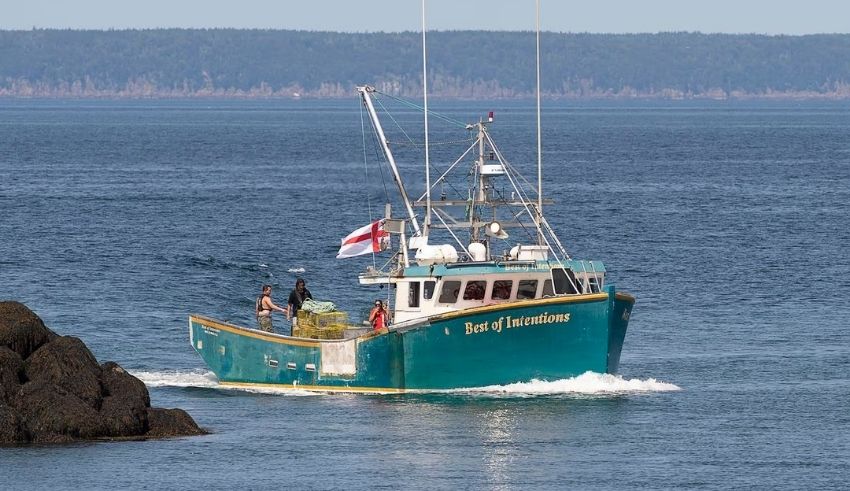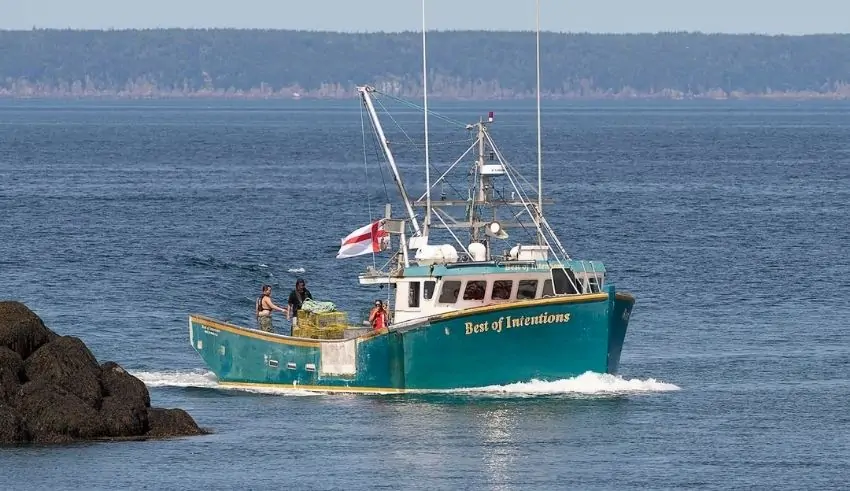

(C) The Globe and Mail
Last updated on October 20th, 2023 at 06:17 pm
Imagine a world where cutting-edge technology meets the age-old struggle for the seas. In a narrative that could rival the most gripping tales, Canada and the Philippines have joined forces to tackle one of the oceans’ greatest challenges: illegal fishing. The tool in their arsenal? Canada’s enigmatic “Dark Vessel Detection System.”
Picture this: hidden away in the Philippines, a sprawling archipelago that boasts breathtaking landscapes and vibrant cultures, there exists a relentless issue – illegal fishing. These waters, rich with marine life, have suffered from the menace of unregulated fishing for far too long. Enter Canada’s state-of-the-art solution, the “Dark Vessel Detection System.”
What sets this collaboration apart is the sheer brilliance of the technology at play. This system has the power to track illegal fishermen, even when they attempt to evade detection by turning off their location-transmitting devices. It’s like a digital detective for the high seas, and it’s a game-changer in the fight against illegal fishing.
Illegal and unregulated fishing is not just a local woe; it extends its dark shadow to disputed territories in the South China Sea. In this complex geopolitical arena, the Philippine coast guard has frequently accused Chinese counterparts of employing the tactic of shutting off their location-transmitting devices to avoid scrutiny.
This groundbreaking agreement was forged during discussions in Ottawa, Canada’s capital, where the two nations deliberated on strengthening their bilateral relations. It is obvious that this alliance constitutes a huge step forward in our common pursuit of marine security, even while the specifics of the agreement are kept private.
Despite its unmatched beauty and strategic importance, the South China Sea has long been a source of conflict on the global stage. On the basis of historical precedent, China has claimed almost the whole South China Sea. However, a 2016 decision of an arbitration tribunal dismissed this claim. China declined to take part in the litigation that led to this judgement, calling it illegitimate and refusing to abide by it. The Philippines had brought the case in the first place.
But in the South China Sea, there are more players than simply two. As the water lanes crisscross the area, aiding international trade, Vietnam, Malaysia, Taiwan, and Brunei have all placed their claims in this complex maritime conundrum.
Canada’s unequivocal support for the 2016 arbitration ruling aligns it with a group of Western nations that insist on the recognition of the verdict. This unique partnership between Canada and the Philippines represents not just an endeavor to safeguard the seas but a testament to international cooperation in the face of complex and contentious challenges.
As the nations unite to protect their shared waters, they write a new chapter in the ongoing saga of international diplomacy. The world watches with hope and anticipation, for their pioneering partnership might hold the key to addressing one of the most enduring challenges of our time – the preservation of our oceans for generations to come.
OpenAI updated ChatGPT-4o to include its best text-to-image tools so free users can generate Studio Ghibli artwork by giving basic…
The stepping down of Piyush Gupta from the post of CEO of DBS Bank came after 15 years of leading…
The Delhi Directorate of Education releases 2025-26 marks for year-end tests in school levels 6 through 11. Online test data…
Singapore will further cement its status as an important basketball destination when it hosts three FIBA 3x3 events in 2026…
Jewel Section E, directed by Theodore Boborol and starring Ashtine Olviga as Jay-Jay Mariano, Andres Muhlach as Mark Keifer Watson,…
Cebu Pacific celebrates the delivery of its very first aircraft for 2025, the 459-seat Airbus A330neo, delivered at Ninoy Aquino…
This website uses cookies.
Read More